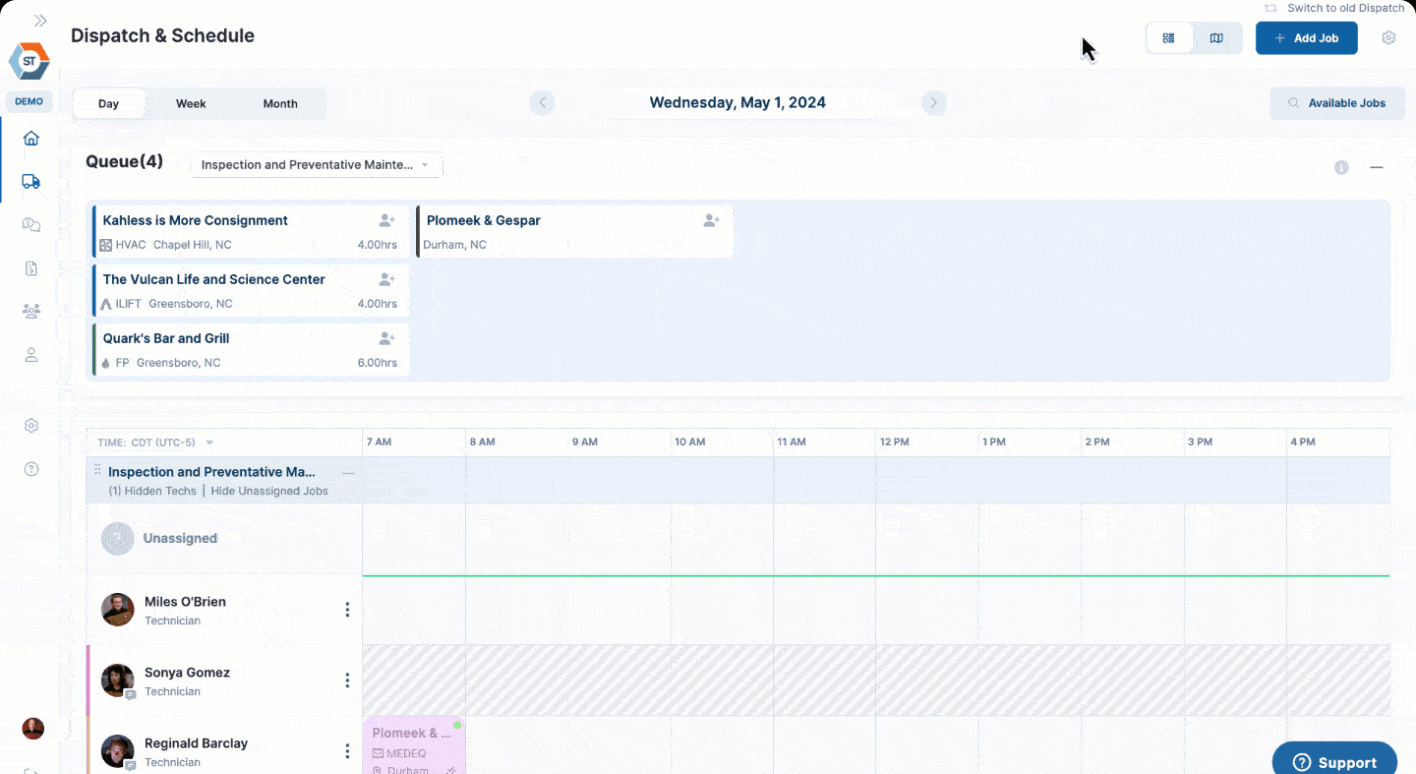Becoming an HVAC Project Manager for Commercial Service Providers
Becoming an HVAC Project Manager is a highly sought-after career path within the commercial sector. This article aims to provide an in-depth understanding of the steps involved in becoming an HVAC Project Manager, exploring the challenges and advantages of this role, and offering actionable tips and insights for aspiring professionals. Whether you are a technician looking to advance your career or an HVAC company seeking to cultivate future leaders, this comprehensive guide will equip you with the knowledge and tools necessary to excel in the field.
Qualifications and Education
To embark on the journey to become an HVAC Project Manager, one must possess the required qualifications and education. We will delve into the educational requirements, such as obtaining a relevant degree or certification. Additionally, we will emphasize the significance of continuing education in order to stay abreast of the latest industry practices, cutting-edge technologies, and regulatory guidelines that govern the commercial HVAC sector.
Technical Skills and Experience
A strong foundation of technical skills is crucial for the successful management of HVAC projects. In this section, we will explore the specific technical skills essential for HVAC Project Managers. These skills include a deep understanding of HVAC systems, equipment, codes, and regulations. Furthermore, we will underscore the importance of gaining practical experience in the field, as it allows HVAC Project Managers to grasp the complexities and intricacies associated with commercial HVAC projects.
Pathway to Becoming an HVAC Project Manager
For technicians aspiring to transition into project management, a clear pathway must be established. This section will outline the exact steps needed to leverage existing knowledge and experience. From expanding skillsets to assuming additional responsibilities, seeking professional growth opportunities, and charting a career trajectory, we will provide a comprehensive roadmap to becoming an HVAC Project Manager. Moreover, we will underscore the advantages of possessing technical expertise when managing complex projects.
By following these steps, one can leverage their existing knowledge, technical expertise, and experience to become a successful HVAC Project Manager, leading teams and executing efficient, challenging projects:
- Attain Education and Certification: Obtain a bachelor’s degree in mechanical engineering or HVAC technology and acquire relevant certifications like NATE or EPA.
- Gain Technical Experience: Work as an HVAC technician, installer, or service provider to gain hands-on experience in the field.
- Enhance Technical Skills: Attend training courses and workshops to enhance technical skills and expand knowledge to efficiently manage complex projects.
- Assume Additional Responsibilities: Start taking on additional responsibilities as a senior technician or supervisor to develop skills in managing a team and executing projects efficiently.
- Develop Project Management Skills: Gain experience in project management by working on small projects or assisting an experienced HVAC Project Manager.
- Become Familiar with Codes and Regulations: Acquire knowledge of local, state, and federal HVAC codes and regulations that govern the industry.
- Pursue Professional Development Opportunities: Attend conferences, workshops, and pursue training programs that offer professional development in HVAC Project Management.
- Build a Network: Attain industry knowledge, meet other professionals, and stay up-to-date on current news and trends through joining relevant HVAC associations and attending local networking events.
- Find a Mentor: Find a seasoned HVAC Project Manager to serve as a mentor and offer insights, guidance, and advice.
- Chart a Career Trajectory: Establish career aspirations, set achievable goals, and continue to gain experience and training to build and execute your career trajectory.
Challenges of HVAC Project Management
While HVAC Project Management offers numerous rewards, it is not without its challenges. In this section, we will delve into the common obstacles faced by HVAC Project Managers. This includes juggling multiple tasks and responsibilities, managing a diverse team of technicians with varying skill sets and personalities, and navigating through project obstacles. Understanding and preparing for these challenges will equip aspiring HVAC Project Managers with the resilience and adaptability needed to thrive in this role.
Advantages of Becoming an HVAC Project Manager
Embracing the role of an HVAC Project Manager offers several advantages for professionals within the commercial service sector. This section will explore the competitive compensation packages, career growth opportunities, and job satisfaction associated with this position. Additionally, we will highlight the significant impact HVAC Project Managers can make in streamlining operations, enhancing customer satisfaction, and driving overall business success within commercial service providers.
Tips and Insights for Success as an HVAC Project Manager
To excel as an HVAC Project Manager, it is essential to adopt certain strategies and insights. This section will provide actionable tips, such as managing time effectively, prioritizing tasks, fostering strong communication skills with clients and team members, and leveraging project management tools and software. By implementing these best practices, HVAC Project Managers can optimize their efficiency, mitigate potential risks, and ensure successful project outcomes.
Some tips for success as an HVAC Project Manager include:
- Effective Time Management: Prioritize tasks, create a schedule, and set realistic deadlines to ensure projects stay on track.
- Develop Strong Communication Skills: Engage in clear and concise communication with clients, team members, and stakeholders to foster effective collaboration and avoid misunderstandings.
- Build and Maintain Relationships: Nurture strong relationships with clients, contractors, and suppliers to foster trust and facilitate smooth project execution.
- Enhance Technical Knowledge: Stay updated with the latest industry trends, advancements, and regulations to make informed decisions and provide expert guidance.
- Be Adaptable and Flexible: Projects can encounter unexpected challenges and changes. Being adaptable and flexible in your approach allows you to handle unforeseen circumstances with ease.
- Delegate and Empower: Understand the strengths of your team members and assign tasks accordingly. Empower them to take ownership of their responsibilities while providing guidance and support.
- Utilize Project Management Tools: Leverage HVAC project management software and tools to streamline workflows, track progress, and ensure effective communication and documentation.
- Attention to Detail: Pay meticulous attention to details, from project specifications to budgets and timelines, to avoid costly mistakes and ensure project success.
- Problem-Solving Skills: Develop strong problem-solving and critical thinking skills to overcome project obstacles and find innovative solutions.
- Continuous Learning: Stay committed to ongoing learning and professional development to continually improve your skills and stay ahead in the dynamic HVAC industry.
- Risk Management: Assess potential risks and develop contingency plans to mitigate their impact on projects and ensure successful outcomes.
- Lead by Example: Display leadership qualities by setting a positive example, demonstrating integrity, and fostering a collaborative and supportive work environment.
- Manage Stakeholder Expectations: Regularly communicate project progress and manage stakeholder expectations to ensure alignment and minimize potential conflicts.
- Document and Review: Maintain thorough documentation of project details, decisions, and customer requirements. Regularly review project progress to identify areas for improvement and adjust strategies as needed.
- Embrace Continuous Improvement: Strive for excellence by consistently evaluating your performance, seeking feedback, and implementing lessons learned to enhance future projects.
By incorporating these tips and insights into your HVAC Project Management approach, you can increase your chances of success, deliver exceptional results, and build a reputation as a reliable and efficient HVAC Project Manager.
Building Strong Relationships: Collaborating with Stakeholders
In this extra section, we will emphasize the significance of building strong relationships with stakeholders. Effective communication, client management, and collaboration with internal and external teams are paramount for successful project execution. We will discuss techniques for establishing and maintaining positive relationships, including active listening, effective negotiation, and conflict resolution strategies.
Becoming an HVAC Project Manager requires a combination of qualifications, technical skills, experience, and the ability to overcome challenges. By following the steps outlined in this comprehensive guide, aspiring HVAC Project Managers can pave their way to success within the commercial sector. Embracing the advantages, preparing for the challenges, and implementing the actionable tips and insights provided, individuals can excel in this rewarding role. Are you ready to take the leap and embark on the journey to become an HVAC Project Manager in the commercial sector? The opportunities await you.
Learn about ServiceTrade’s HVAC software here.

